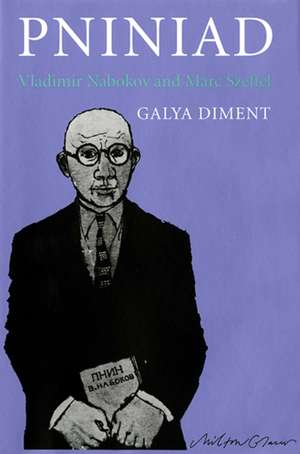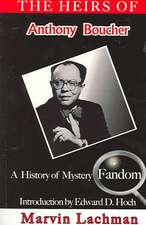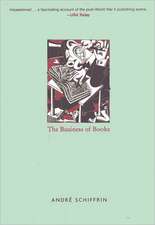Pniniad – Vladimir Nabokov and Marc Szeftel
Autor Galya Dimenten Limba Engleză Paperback – 30 apr 2013
| Toate formatele și edițiile | Preț | Express |
|---|---|---|
| Paperback (1) | 224.55 lei 6-8 săpt. | |
| MV – University of Washington Press – 30 apr 2013 | 224.55 lei 6-8 săpt. | |
| Hardback (1) | 378.06 lei 6-8 săpt. | |
| MV – University of Washington Press – 31 iul 1997 | 378.06 lei 6-8 săpt. |
Preț: 224.55 lei
Nou
Puncte Express: 337
Preț estimativ în valută:
42.97€ • 45.01$ • 35.61£
42.97€ • 45.01$ • 35.61£
Carte tipărită la comandă
Livrare economică 08-22 aprilie
Preluare comenzi: 021 569.72.76
Specificații
ISBN-13: 9780295992860
ISBN-10: 0295992867
Pagini: 256
Dimensiuni: 153 x 229 x 20 mm
Greutate: 0.34 kg
Editura: MV – University of Washington Press
ISBN-10: 0295992867
Pagini: 256
Dimensiuni: 153 x 229 x 20 mm
Greutate: 0.34 kg
Editura: MV – University of Washington Press
Recenzii
"Pniniad is an utterly absorbing, sad, and touching book." -Robert Alter, University of California, Berkeley
Notă biografică
Descriere
Explores the complicated and fascinating relationship between Vladimir Nabokov and his Cornell colleague Marc Szeftel
Textul de pe ultima copertă
Galya Diment explores the complicated and fascinating relationship between Vladimir Nabokov and his Cornell colleague Marc Szeftel who, in the estimate of many, served as the prototype for the gentle protagonist of the novel Pnin. She offers astute comments on Nabokov's fictional process in creating Timofey Pnin and addresses hotly debated questions and long-standing riddles in Pnin and its history. Pniniad - the epic of Pnin - begins with Szeftel's early life in Russia and ends with his years in Seattle at the University of Washington, turning pivotally upon the time when Szeftel's and Nabokov's lives intersected at Cornell. Nabokov apparently was both amused by and admiring of the innocence of his historian friend. Szeftel's feelings toward Nabokov were also mixed, ranging from intense disappointment over rebuffed attempts to collaborate with Nabokov on a scholarly study (of a medieval Russian epic) or to write about his work (Lolita), to persistent envy of Nabokov's success and an increasing wistfulness over his own sense of failure. A generous selection of relevant archival materials includes Szeftel's autobiographical writings, his talks and published essays relating to Nabokov, and his correspondence with Nabokov and Roman Jakobson.










